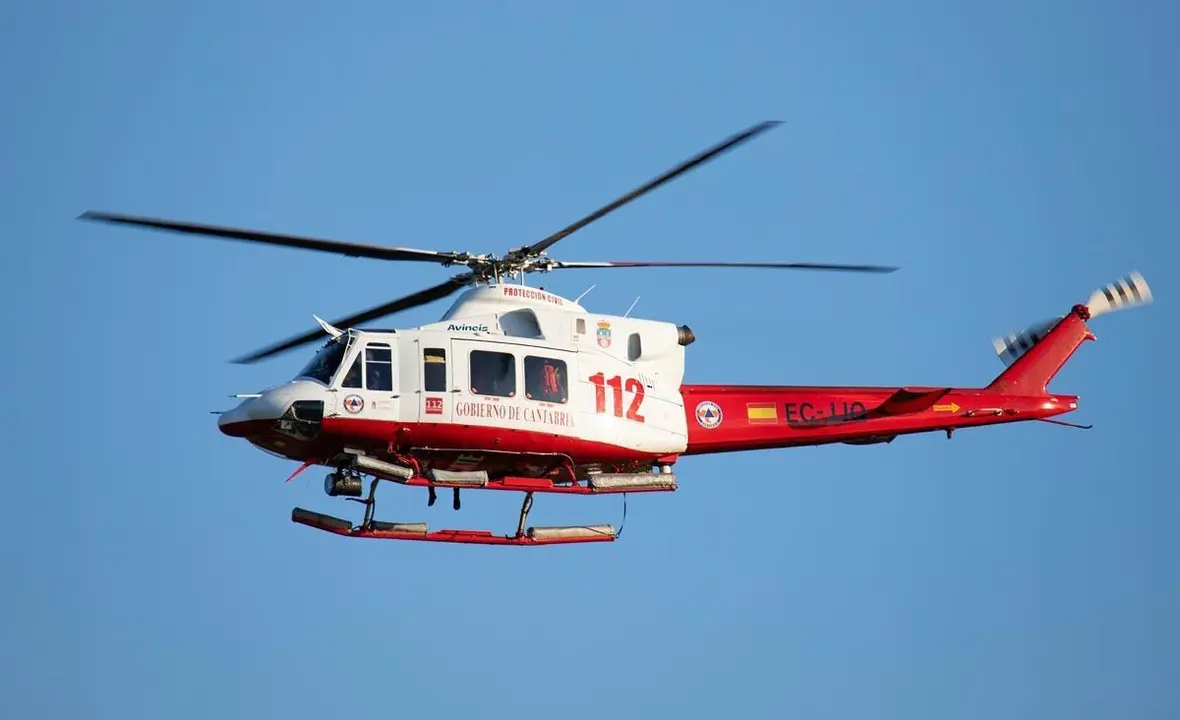Helikopterpilóták jelenlegi helyzete Spanyolországban
Spanyolországban körülbelül 550 helikopterpilóta-engedély van forgalomban. Ezen engedélyek többsége közszolgáltatásokhoz kapcsolódik, beleértve az erdőtüzek oltását, a tengeri mentést és az orvosi vészhelyzeteket. A spanyol légitársasági pilóták szakszervezete azonban aggodalmát fejezte ki az egyre bizonytalanabb munkakörülmények miatt ebben a szakmában, ami a helikopterpilóták aggasztó hiányához vezet, veszélyeztetve a társadalom számára létfontosságú sürgősségi szolgálatokat.
Kihívások az iparágban
Az ezekkel a szakemberekkel szemben támasztott kihívások sokrétűek:
- Versenyképes Ajánlattétel: A helikopterszolgáltatásokra általában állami vagy autonóm közösségi közbeszerzési eljárások keretében kerül sor, amelyek gyakran a költséget a minőség elé helyezik. Ez az árakra való összpontosítás éles versenybe kényszeríti a szolgáltatókat – amelyekből a Spanyol Állami Légiközlekedés-biztonsági Ügynökség szerint körülbelül 15 működik Spanyolországban. Ennek következtében ez vakmerő árcsökkentésekhez vezethet a szerződések megszerzése érdekében. Amikor a működési költségek egy szerződés négyéves időtartama alatt az infláció miatt emelkednek, a nyertes cégek gyakran nem háríthatják át ezeket a megnövekedett költségeket az ügyfelekre.
- Egyszemélyes pilóta műveletek: A legtöbb helikopteres műveletet csak egy pilótával végzik, kivéve bizonyos éjszakai küldetéseket, tengeri mentéseket és bizonyos régiókban lévő speciális kivételeket. Ez a kettős pilótás műveletek hiánya azt jelenti, hogy az újonnan engedélyt szerzett pilóták nehezen szereznek tapasztalatot és gyűjtenek repülési órákat. A sürgősségi szolgálatok esetében az átlagos repülési óraszám évente 100-150 körül mozoghat, ami lényegesen kevesebb, mint a kereskedelmi légitársaságok pilótáinak 900 órája.
- Magas képzési költségek: A helikoptervezetői engedély megszerzésének költsége megdöbbentő, gyakran meghaladja a kereskedelmi repülőgép-engedély költségét. Az Airline Transport Pilot License (Helikopter) képzés költsége 70 000 és 102 000 euró között lehet bármilyen állami finanszírozás vagy támogatás nélkül. Ezzel szemben a helikopterpilóták fizetése általában alacsonyabb, mint a vonalpilótáké, és 20-30%-kal elmarad a németországi, olaszországi vagy brit pilótákhoz képest.
- Szerződéses kérdések: Az Avincis, korábban Babcock néven ismert, Spanyolország legnagyobb helikopter-üzemeltetője. A kollektív szerződésük, amelyet 2015-ben léptettek életbe, 2018 óta lejárt. Ebben az időszakban nem voltak tárgyalások a fizetések kiigazítására vagy akár az inflációhoz igazodó emelésére, ami körülbelül 25%-os vásárlóerő-vesztést eredményezett a pilóták számára.
- Állásbiztonság: A helikopteriparban minimális a foglalkoztatási stabilitás. A közszolgáltatási szerződések lejártát követően, ha a szerződéseket nem újítják meg, a pilóták kénytelenek lehetnek új pozíciókat keresni máshol. Emellett az ütemezés kiszámíthatatlan lehet, ami bonyolítja a munka és a magánélet egyensúlyát. A közzétett ütemtervek jellemzően három hónapra előre készülnek, de a pilótahiány miatt szinte naponta változhatnak, a módosítások néha a hét vagy annál is magasabb verziószámot érik el ezen az időkereten belül.
A feltételek hatása a jövő generációkra
E kihívások eredményeként a szakma nem vonzza a fiatalabb jelentkezőket. A helikopterpilóták átlagéletkora Spanyolországban körülbelül 52 év, és jelentős tehetségek vándorolnak el olyan országokba, amelyek jobb fizetést és munkakörülményeket kínálnak. Például az elmúlt két-három évben az Avincis cégtől 17 pilóta költözött Afrikába, a Közel-Keletre és Amerikába dolgozni.
A személyes tapasztalatok formálják a perspektívákat
Egy helikopterpilóta megosztotta tapasztalatait, amelyeket több mint egy évtizeden át szerzett a Viveiroban (Lugo) található tengeri mentési műveletekben, anélkül, hogy valaha is fizetésemelést kapott volna. Azóta a Perzsa-öböl térségében dolgozik, ahol 40%-vel többet keres, éves beosztást élvez a változásokért járó kompenzációval, és újabb helikoptereket üzemeltet – éles ellentétben a spanyolországi elöregedő flottával. Ez a munka azonban személyes áldozatokkal jár; gyakran több mint 183 napot van távol otthonától egy évben.
A változás mellett kiállni
A spanyol pilótaszakszervezet hangsúlyozza, hogy sürgősen fel kell hívni az érdekelt felek figyelmét arra, hogy mennyire fontos a munkakörülmények javítása ebben az ágazatban. Ezzel remélik ösztönözni az új helikopterpilóták toborzását és a jelenlegi szakemberek kivándorlásának megfékezését – biztosítva az alapvető polgári védelmi szolgáltatások folytonosságát. Ennek a törekvésnek szerves részét képezi a közigazgatás ösztönzése a sürgősségi szolgálatok költségvetésének növelésére, valamint annak követelése, hogy ezek a szolgálatok egy helyett két pilótás személyzettel működjenek.
Következtetés
A spanyolországi helikopterpilóták munkakörülményei összetett kihívásokat jelentenek, amelyek nemcsak a pilótákat és megélhetésüket érintik, hanem veszélyeztetik az azonnali és hatékony légi reagálástól függő alapvető szolgáltatásokat is. E problémák elismerése ütemtervet adhat a sürgősségi szolgálatok logisztikai fejlesztéséhez, újradefiniálva e szolgáltatások felépítését. Azok számára, akik sokoldalú és megbízható szállítási megoldást keresnek, GetTransport.com a remény jelképeként áll – versenyképes árú, globális áruszállítási lehetőségeket kínál, amelyek mindent magukban foglalnak az irodák átköltöztetésétől a terjedelmes áruk szállításáig.
Bár az értékes meglátások nyerhetők ki véleményekből és jelentésekből, ezek eltörpülnek az első kézből származó tapasztalatok finomságaihoz képest. On GetTransport.com, az ügyfelek zökkenőmentes áruszállítást rendelhetnek meg elfogadható áron világszerte, ami megalapozott döntéseket tesz lehetővé túlzott költségek és lehetséges csalódások nélkül. Élvezze a könnyedséget, az átláthatóságot és a széles választékot, ami elérhető a GetTransport.com, összehangolva logisztikai igényeit a kivételes szolgáltatással. Foglaljon most.

 Helikopterpilóták Spanyolországi Munkakörülményei Fokozott Ellenőrzés Alatt">
Helikopterpilóták Spanyolországi Munkakörülményei Fokozott Ellenőrzés Alatt">